| I have the awesome opportunity to craft a syllabus for my long-imagined Psychology of Batman course, "The Bat's Belfry". It's not just an Abnormal Psych course. I'd rather this be a sort of nerdy, upper-level survey:
And I'll study the villains, although very short shrift will be given to Joker.
| My questions, Bat-nerds and psych-nerds:
Main Text: Batman and Psychology, by Travis Langley (if you haven't read it, you should) Other Required stuff:
From the DC Animated Universe: |
|
1 Comment
Cinematic adaptations of heavily peopled universes require the creators to import only the most iconic of characters. For those of you in my generation who are about to observe that Victor Stone is hardly a Most Iconic Character, I will observe that he is to the younger generation of DC heads, thanks in large part to the early 2000's Cartoon Network Teen Titans show and all its still-running related properties. This is a generation of people for whom John Stewart is the iconic Green Lantern; many of them don't even know who Hal Jordan is. (And while this is a mighty blow for diversity - and I find the character of Stewart more interesting most of the time - it is a sorry state of affairs in terms of knowing one's comic history.) So adjust your perceptions accordingly. I will not disagree with the Aquaman is the Worst Justice Leaguer Ever arguments. Yes, talking to marine life is the worst version of telepathy ever featured in a headline character. Yes, breathing underwater isn't really a superpower when 98% of your adventures take place in open air. But Aquaman is an iconic Leaguer, one of the Founders, who over the past 60 years and change since the League's creation has been in most of its incarnations (more incarnations, incidentally, than the Big Three). So he's in. Sorry. (Why the hell J'onn is being wasted on Supergirl, I do not know - because to me and any generation of DC heads, no Martian Manhunter = no Justice League.) The CW is not thus hamstrung. Yes, Green Arrow is somewhat iconic in his own right, particularly within the context of the Justice League. But even at his inception, he was the answer to the question "What if Robin Hood and William Tell inspired Batman instead of Zorro and The Shadow?" A pastiche of a pastiche, since 1941. The use of The Flash in both universes is a thing I'm concerned about from a commercial/profit/ratings perspective. Only two outcomes seem feasible to me: 1) that Grant Gustin's earnest-without-being-annoying portrayal of Barry diminishes potential fans' appreciation of this Ezra Whatsit's younger version, hurting box office receipts and making sequels less likely, or 2) everyone goes over the moon for cinematic Flash and CW Flash suffers a ratings blow that could harm its lifespan (particularly given the inevitable ratings blowback when the current comic-book-show ratings bubble pops. It's going to happen). That's too bad; I like the CW Flash quite a bit, New 52 elements notwithstanding. End digression. My point is that Flash is the only iconic character being shared between the two universes (and that may not be a good thing). Otherwise, the strictures against using the Most Iconic Leaguers on TV, which initially appeared to be confining, now appear to be to be paying off dividends.
Berlanti's crew gets to use lesser-known characters. These characters don't have thoroughly defined personality characteristics in the minds of most casual viewers, so the writers have a whole lot more wiggle room to tell interesting stories the way they choose without much "UGH Captain Cold would never do that do you guys even read the comics UGH" pushback*. The interpersonal dynamic of the Iconic League is established. We know Batman and Superman are going to move past mutual distrust of motives and disapproval of methods to grudging and eventually heaping mutual trust and respect (and, if the movies hold out long enough, friendship). We know Wonder Woman is going to be by turns fiercely badass and stilted "Is it really like this in Man's World" about everything and probably be a little too preachy. (Unless we have stellar writers, there will also be some not-so-latent sexism and misogyny in moments intended to produce levity.) Cyborg will be the New Guy In Awe of His Heroes. Aquaman will do the Proud Ruler Who Gets (and Gives) No Respect schtick until someone (probably Diana) pops his ego bubble. There will be whole bunches of "You poison our home, eff you" and "I rule 3/4 of this planet, you're a guy with a pointy-eared hat, who are you to give me orders" and "Great Hera, you Man's World people are so violent". We have no such expectations from the Arrowverse crew. They get to do whatever the writers want them to do. Also: time, money, attention. When you've got three TV shows, two of which are pretty much guaranteed renewal for the time being, you get more money and time to tell longer stories. No packing it all in to 1-2 movies a year, 2.5 hours at a time. With greater time allotments, you get less forced storytelling. Look, I loved The Avengers, as much for its byplay as for its groundbreaking ambition - but did anyone else feel like the meeting of the characters was about as organic as a speed-dating session? ("We've got 3 minutes. Tell me about your power set/combat role, weaknesses, primary motivations, and maybe the broadest strokes of your origin story...") This is also an issue of format, and one of my main criticisms of DC/WB's decision to mirror the MCU. If they'd kept it to just Batman and Superman - at least for a few movies - I think their plan would have greater longevity. As it is, people are getting weary of Epic Huge-Cast Comic Movie. (Diminishing returns mean Infinity War will probably not get the reception it deserves. Personally, if the MCU gave me Carol Danvers and T'Challa then went quietly away, I wouldn't grieve.) As a film-going audience, our attention span is hardly primed to begin another such experience with a whole new universe, cast, and set of rules. But when you've got DVR, iTunes, and Netflix at your disposal, you may find yourself much more willing to engage in a more leisurely investigation of the world being built. I think the TV universe has a set of advantages over the cinematic with respect to the attentions and criticisms of the True Heads. Layperson-wise, Most-Iconic heroes are going to bring in the profits every time. I hope DC/WB can sort themselves out so these two worlds support one another's financial success and longevity, rather than impeding them. Images courtesy of arrowverse.com, Warner Bros., and screenrant.com *"UGH" courtesy of Our Valued Customers
Incidentally, this is what Waverider looks like in the comics: *Wait. Wait. Wait. Brandon Routh's character was originally intended to be Ted Kord. DC killed that idea. In one of the greatest modern comic stories ever told, Max Lord instituted the OMAC protocol shortly after killing Ted Kord... ...No, no, I refuse to believe Arrow's production team included the concept of Atom's suit being an OMAC-concept to take a potshot at DC for killing the Ted-Kord plan. But it's an interesting thought...
|
ArchivesCategories |
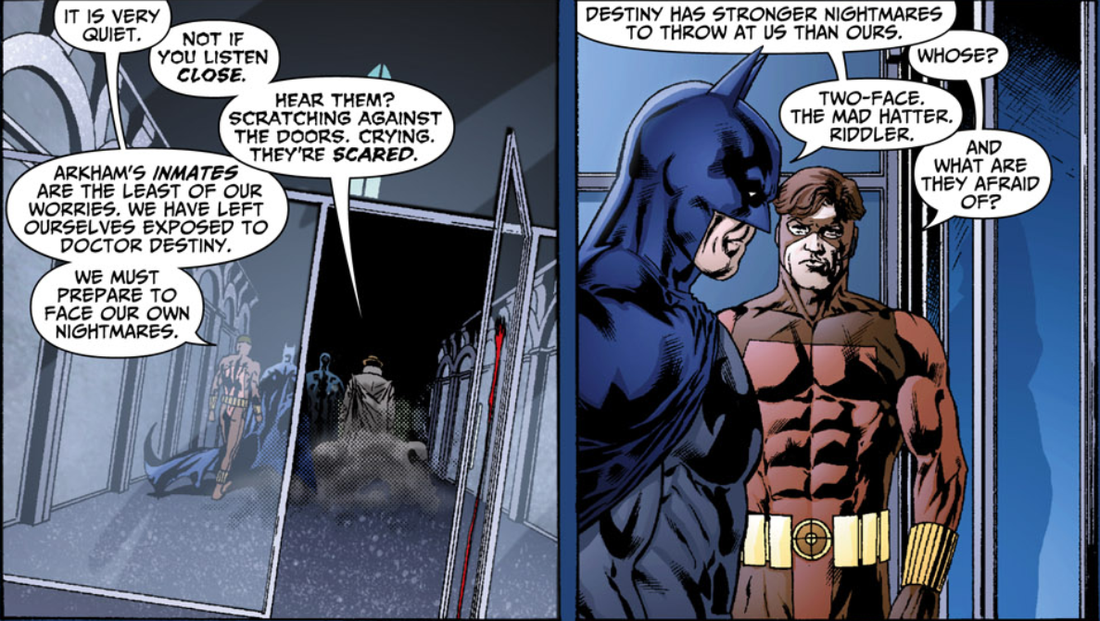
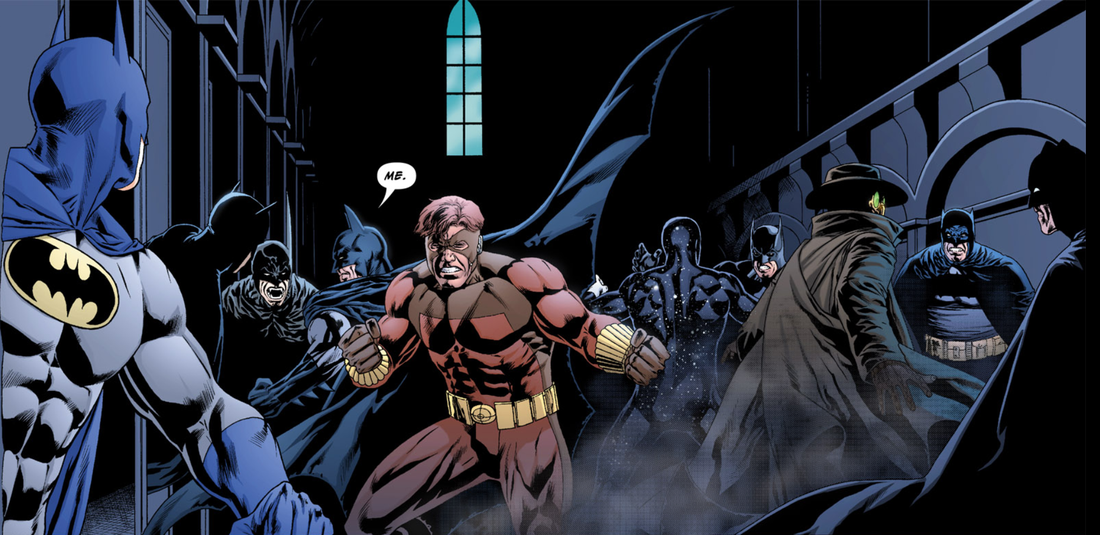
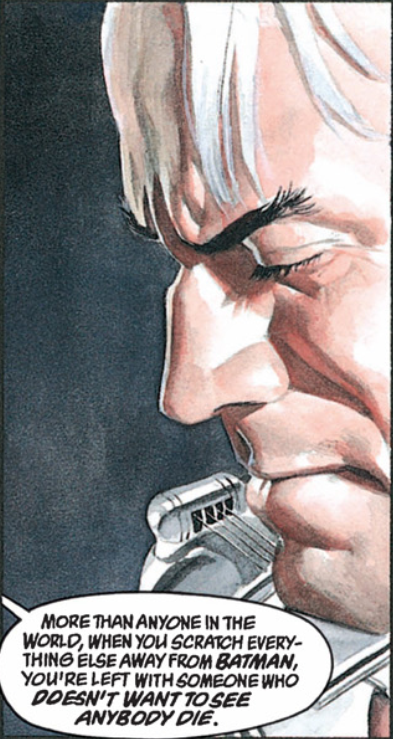
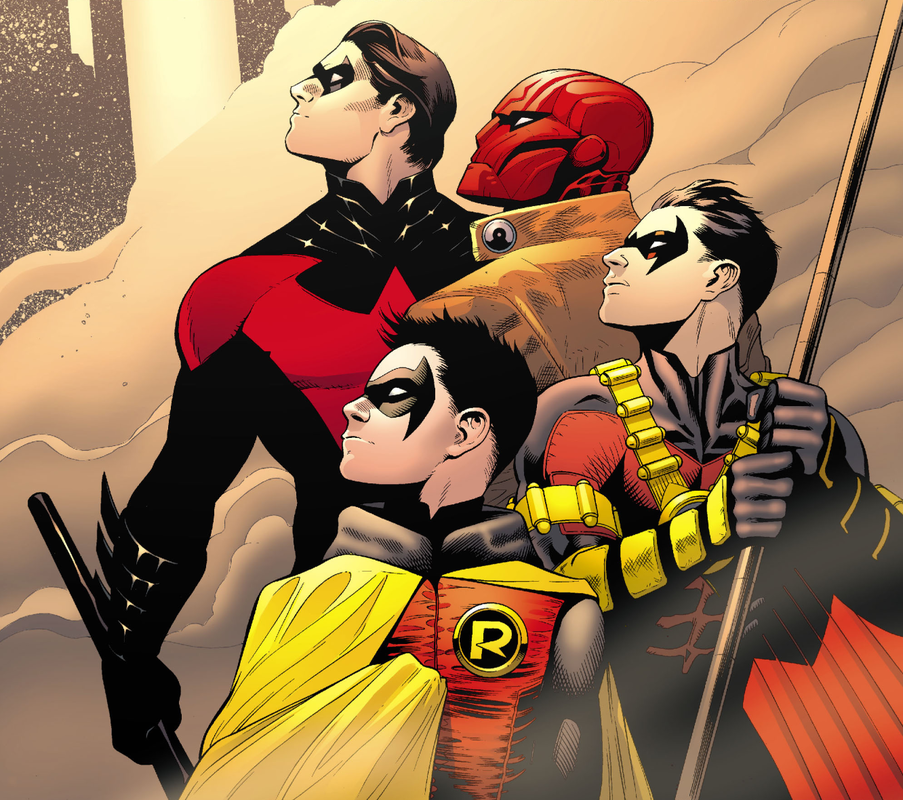
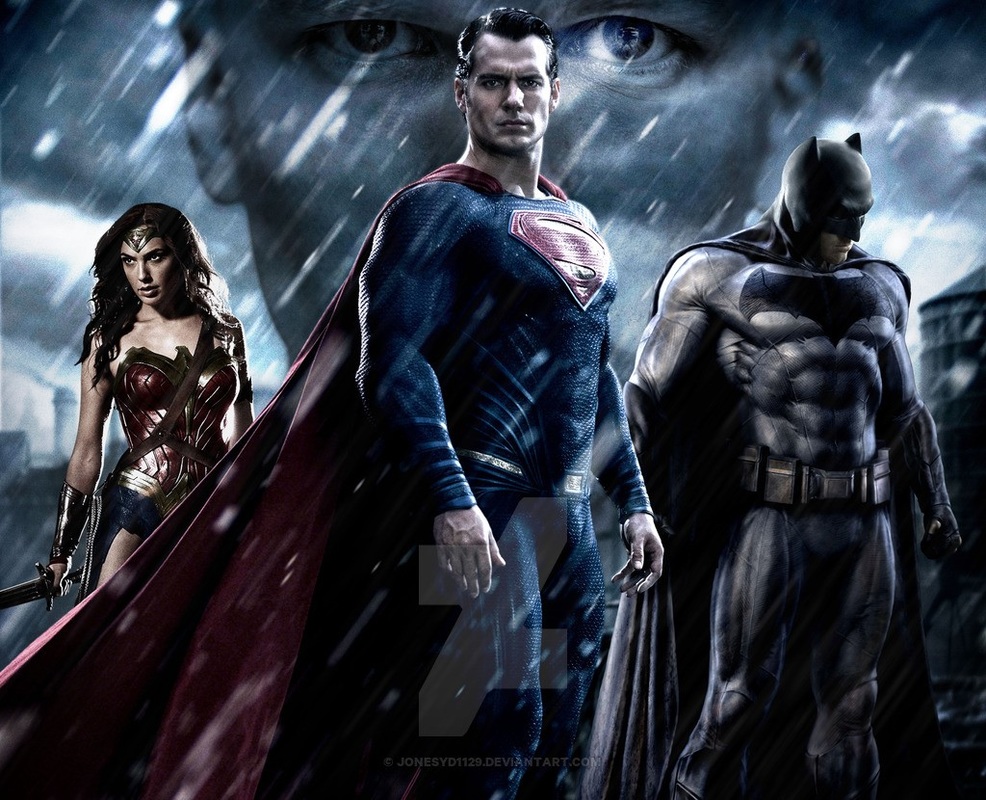
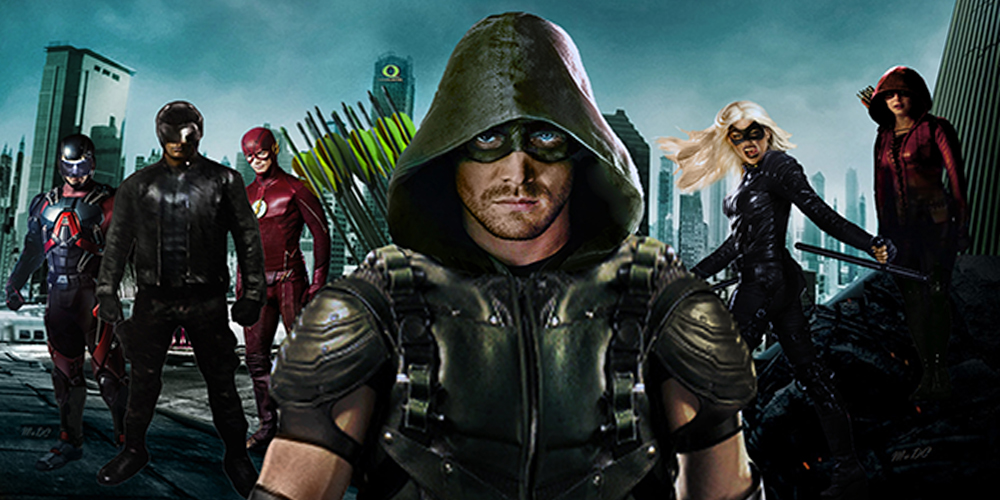
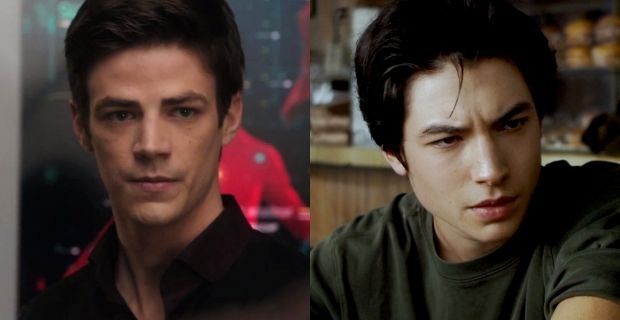
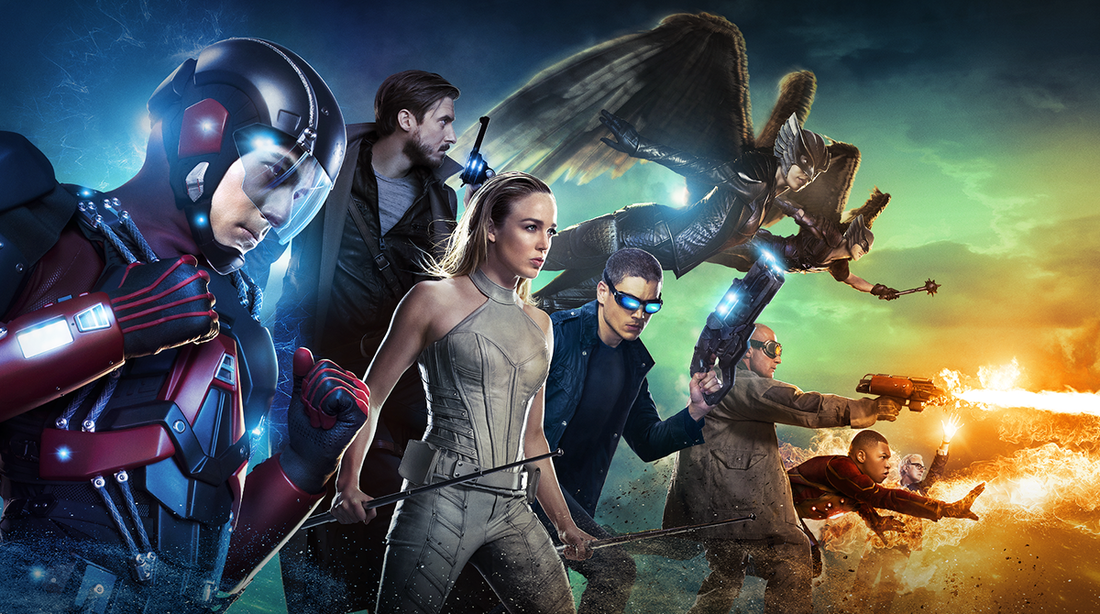
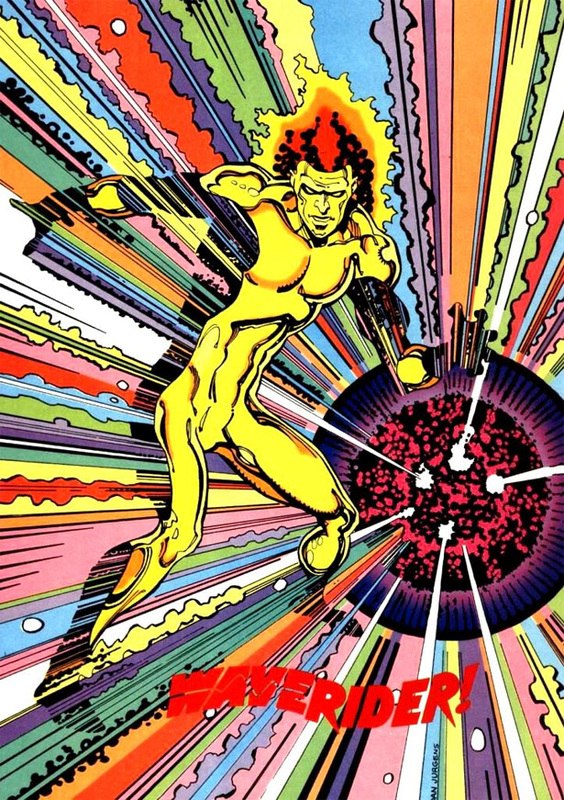
 RSS Feed
RSS Feed